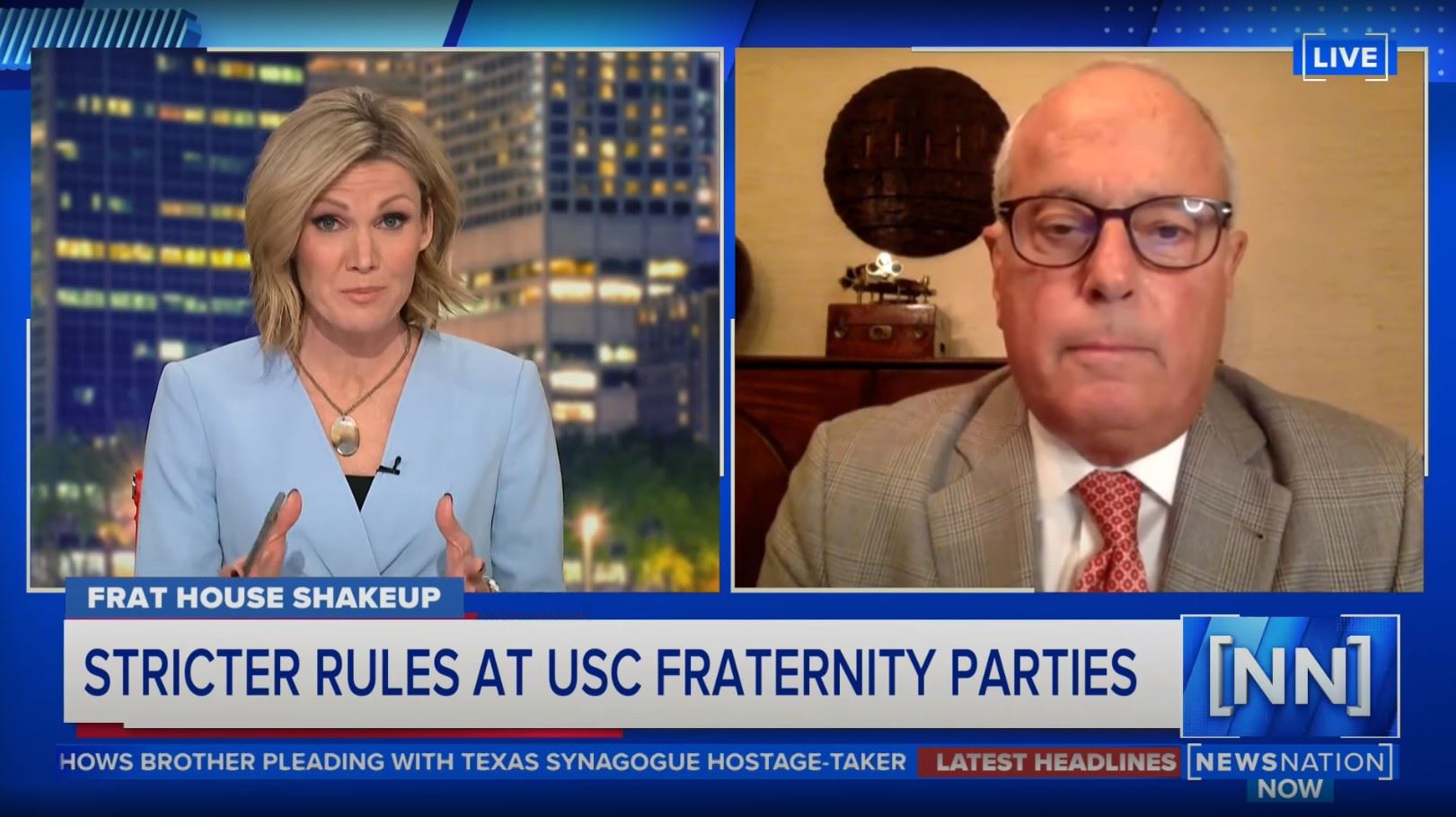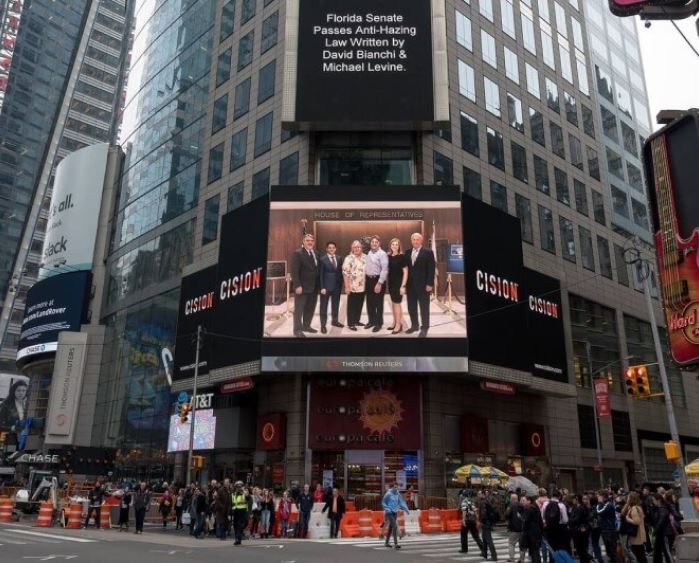



Fraternity Hazing Lawyers
Helping Victims of Fraternity Hazing Nationwide
Hazing isn't limited to Greek life, but fraternity hazing is what most people mean when they say "hazing"; in many ways, it typifies everything tragic about it. All hazing relies on some form of coercion, but fraternity hazing preys specifically on a person's need to belong. Many fraternity hazing deaths happen to "pledges," or people working to earn their way into the tribe. They usually earn it through acts of "courage" (i.e., acts of humiliation, exposure, alcohol abuse, and submission to a senior member of the fraternity).
Fraternity hazing is more insidious than general hazing because it is treated as an acceptable requirement for joining Greek life. College authorities often do very little to stop it, which helps perpetuate it. As some see it, it is a culturally accepted form of bullying under the guise of "character-building traditions." These are the words used to shield fraternity hazing from a cultural reckoning—or at least, it was.
Now many parents see fraternity hazing for what it is: A wasteful, tragic, and utterly needless component of college life.
The hazing lawyers at Stewart Tilghman Fox Bianchi & Cain, P.A. will not allow hazing to go unpunished. We will not sit idly by and allow young college students to be harmed at the hands of 'clubs' sanctioned by universities looking the other way. For decades, we have held fraternities and college administrators accountable for their role in harming young people. We've been described as a "national leader in hazing litigation" by the Daily Business Review. NewsNation said "David Bianchi is recognized as one of the nation's most successful lawyers in fraternity hazing cases."
If your son or daughter was harmed or killed by fraternity or sorority hazing, speak with our attorneys to learn what you can do.
Fighting for Chad Meredith
David Bianchi first became familiar with hazing cases when he was retained by the family of Chad Meredith. Chad was an 18-year-old freshman at the University of Miami who had been recruited to be a pledge by the Kappa Sigma fraternity. On a cold and windy night in November, the fraternity president and vice-president spent hours drinking with Chad and then, at 4 AM, told Chad they would swim the lake because it was a fraternity tradition to do so.
Chad hated swimming, especially in dark water where he could not see the bottom. Nevertheless, not wanting to risk rejection by the fraternity, he followed them into the water and attempted to swim across the lake. Halfway across, he had a panic attack. He was abandoned by the fraternity officers as he screamed for help and drowned. Police divers recovered his body hours later.
Our firm held the fraternity members responsible by proving they had failed in their duty to aid and rescue Chad, as well as proving that their negligence was what caused Chad's death in the first place. The jury saw through the defense's claims that Chad wasn't 'technically' participating in a fraternity event and awarded Chad’s parents $14 million for their pain and suffering.
When the verdict was announced, the fraternity president (who we sued) came out of his seat and headed for David Bianchi in an attempted attack. He was intercepted by three people who wrestled him to the floor and dragged him out of the court. Some fraternity members never seem to learn.


David Bianchi Interviewed
"Country's Leading Hazing Lawyer"
David is considered a leading expert on hazing litigation and prevention after decades of advocacy for young people and their families. Thanks to his efforts, our firm obtained the largest verdict ever awarded in a hazing case, helped families bring numerous fraternity abuses to light, and worked with legislators to draft the most advanced anti-hazing laws in the country. In October 2021, Prime News asked David to appear on their show as "one of the country's leading hazing lawyers," and solicited his thoughts on how to stop fraternity hazing.


Andrew's Law
Anti-Hazing Legislation for the 21st Century
Like the Meredith family, Tom and Sandra Coffey wanted to make sure that what happened to their son never happened again. They turned to our team of hazing injury and death attorneys for help in improving Florida law and, in response, David Bianchi and Michael Levine began lobbying the Florida legislature to strengthen the Chad Meredith Act with a series of amendments.
David Bianchi and the Coffey parents testified before the Florida Senate Criminal Justice committee in March 2019 to propose our amendments to the Chad Meredith Act.
The proposals included the following:
- Granting immunity to the first person to call 911 seeking assistance for the hazing victim and immunizing anyone rendering life-saving aid to the victim while help is on the way
- Prosecuting hazing suspects for causing permanent injury
- Holding the organizers and recruiters behind hazing events criminally liable as well
The testimony of David and Tom and Sandy Coffey convinced the committee to approve the proposals. In April 2019, the Florida Legislature unanimously passed the amendments proposed by David Bianchi, Michael Levine, and the Coffey family. Lawmakers also voted to change the name of the bill to "Andrew's Law" and sent the bill to the governor.


Anti-Hazing Laws
Making College Campuses Safer in Florida
The provision in Andrew's Law granting immunity to the first person to call 911 was a response to the unwillingness of Andrew Coffey’s fraternity 'brothers' to call 911 for fear of getting in trouble. The new law was also a response to our case on behalf of Nicholas Mauricio, another FSU student, who was left permanently brain damaged because of a fraternity tradition.
While Nicholas' 'brothers' brought him to the hospital for medical treatment, their answers in response to police questioning led a grand jury to believe that their answers were scripted, and the truth hidden behind the obfuscation. Granting immunity to those that help save the hazing victim in his time of greatest need may incentivize those who know what happened to tell the truth.
The Need for a Federal-Level Andrew's Law
In October 2021, Chi Mu—the University of Missouri chapter of Phi Gamma Delta—subjected 18-year-old Daniel Santulli to the time-honored tradition called “Pledge Dad Reveal Night.”
As a part of that tradition, Danny was given his “family bottle” of Tito's Vodka and ordered to finish it himself. When pledges said they didn't want to drink anymore, fraternity members pressured them to continue. Depressed and physically exhausted, Danny complied.
He ended up with a BAC of .468%, nearly six times the legal limit to drive.
Around midnight, fraternity members discovered Danny on the couch with pale skin and blue lips. Rather than call 911, they drove Danny to the hospital, where staff realized he wasn't breathing and used frantic CPR. Danny survived that night, but his severe brain damage means he is unable to communicate and is no longer aware of his surroundings. His family is devastated.
STFBC filed a lawsuit against 23 defendants, including the Chi Mu fraternity officers and Phi Gamma Delta board of chapter advisors responsible for Danny's safety.





